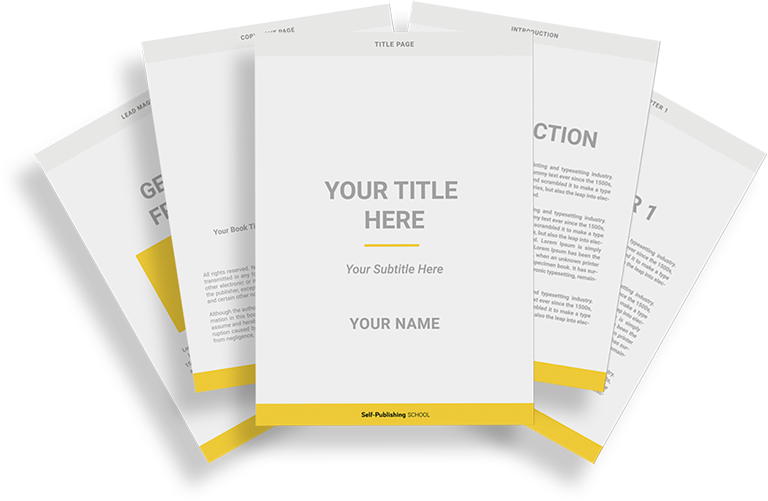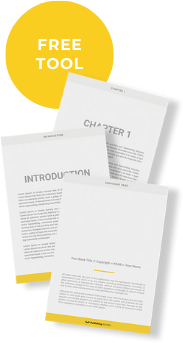The moving, lyrical nature of poetry makes it the perfect medium for inspiration. Many poets utilize the format specifically for that, inspiring generations of readers into forward movement, important action, or just providing an uplifting message.
Let’s look into the details of what makes an inspirational poem, and how we can effectively write our own.
Table of Contents
What is inspirational poetry?
Inspirational poetry is one of many genres of poetry. It aims to motivate and/or uplift readers. They might provide hope, encouragement, or a generally positive outlook on life or a specific situation.
Inspirational poetry can take any form, most commonly lyrical, free verse, and experimental. Some might be serious, while others are lighter in tone—it depends on the goals and intention of the poet.
Examples of inspirational poetry
You can find many examples of inspirational poetry consistently from some writers. Many poets are known for this subgenre, including Maya Angelou, Langston Hughes, Emily Dickinson, and Mary Oliver. While they do write outside of strictly “inspirational” poems, a lot of their themes revolve around hope, encouragement, and self-love.
Here are some examples of specific poems you might look to for examples of inspirational poetry.
Still I Rise by Maya Angelou
You may write me down in history
With your bitter, twisted lies,
You may trod me in the very dirt
But still, like dust, I’ll rise.
Does my sassiness upset you?
Why are you beset with gloom?
’Cause I walk like I’ve got oil wells
Pumping in my living room.
Just like moons and like suns,
With the certainty of tides,
Just like hopes springing high,
Still I’ll rise.
Did you want to see me broken?
Bowed head and lowered eyes?
Shoulders falling down like teardrops,
Weakened by my soulful cries?
Does my haughtiness offend you?
Don’t you take it awful hard
’Cause I laugh like I’ve got gold mines
Diggin’ in my own backyard.
You may shoot me with your words,
You may cut me with your eyes,
You may kill me with your hatefulness,
But still, like air, I’ll rise.
Does my sexiness upset you?
Does it come as a surprise
That I dance like I’ve got diamonds
At the meeting of my thighs?
Out of the huts of history’s shame
I rise
Up from a past that’s rooted in pain
I rise
I’m a black ocean, leaping and wide,
Welling and swelling I bear in the tide.
Leaving behind nights of terror and fear
I rise
Into a daybreak that’s wondrously clear
I rise
Bringing the gifts that my ancestors gave,
I am the dream and the hope of the slave.
I rise
I rise
I rise.
This poem has become an anthem of hope, self-love, and confidence for decades, particularly for people who suffer from discrimination and social adversity. This piece shows an unwavering spirit and almost stubbornness against the world trying to tear her down.
The Hill We Climb by Amanda Gorman
This is only a portion of the poem by Amanda Gorman, presented at the inauguration of President Joe Biden in 2021. The full piece celebrates the resilience of the human spirit and encourages readers to come together in search of a brighter future for all.
When day comes, we ask ourselves, where can we find light in this never-ending shade?
The loss we carry. A sea we must wade.
We braved the belly of the beast.
We’ve learned that quiet isn’t always peace, and the norms and notions of what “just” is isn’t always justice.
And yet the dawn is ours before we knew it.
Somehow we do it.
Somehow we weathered and witnessed a nation that isn’t broken, but simply unfinished.
We, the successors of a country and a time where a skinny Black girl descended from slaves and raised by a single mother can dream of becoming president, only to find herself reciting for one.
And, yes, we are far from polished, far from pristine, but that doesn’t mean we are striving to form a union that is perfect.
We are striving to forge our union with purpose.
To compose a country committed to all cultures, colors, characters and conditions of man.
And so we lift our gaze, not to what stands between us, but what stands before us…
‘Hope’ is the thing with feathers by Emily Dickinson
“Hope” is the thing with feathers –
That perches in the soul –
And sings the tune without the words –
And never stops – at all –
And sweetest – in the Gale – is heard –
And sore must be the storm –
That could abash the little Bird
That kept so many warm –
I’ve heard it in the chillest land –
And on the strangest Sea –
Yet – never – in Extremity,
It asked a crumb – of me.
In this piece, Dickinson compares hope to a bird, illustrating its constant presence in our lives if we were to just look up and see it. The last lines “yet—never—in Extremity,/It asked a crumb—of me,” suggests that hope exists always, requiring nothing from us to do so.
You can find countless other examples of inspirational poems, as it is a very common utilization of the poetry format.
How to write inspirational poetry
There are lots of resources online that can teach beginners how to write poems, but if you’re here, you’re probably looking for something a little more specific. Here are a few tips for writing inspirational poetry.
1. Write lots of poetry
Poems are often hard to force into being good, so the more poetry you write, the higher chance you have at landing on a beautifully inspirational poem in a natural way. If you need some inspiration, consider a list of poetry prompts, or participating in a poetry challenge like Escapril.
2. Consider how you want to inspire people
There are lots of ways writers can inspire readers. Do you want to inspire them to love themselves, like Maya Angelou? To strive for a better future, like Amanda Gorman? Knowing your goals will help you build poems to accomplish them.
3. Read poetry that inspires you
Reading lots of poets is a great way to hone your own style and voice, but reading inspirational poetry can help you determine exactly what you want to inspire people to do. Once you have an idea of your goal, try to find poets in that subcategory and read their work to inspire your own.
4. Write a stellar last line/stanza
The last line of any piece of writing is so important. It’s the note that will ring in your readers’ heads as they put your poem down and go about their day. The last line or stanza is a great place to reiterate (or state) the heart of your piece, present something for them to think about, or even ask a question or leave a call to action of sorts.
So give careful consideration to how you end your inspirational poems, because the last part is likely going to be the most memorable, whether you want it to be or not.
5. Consider using refrain
Refrain is a literary device used in poetry, where a line or phrase is repeated several times throughout the poem. This can be used to emphasize a point, make your reader consider different meanings of the phrase or line, and make the line more memorable.
Using refrain can create a rhythmic chant around the emotion of your piece, making it more inspirational.
6. Use strong language and imagery
As with any form of poetry, using strong language and solid imagery is a must. We can tell our readers anything we’d like, but being able to illustrate it through imagery and support our statements with strong language and word choice, our points will be much more believable and tangible.
7. Be specific but universal
A piece of writing that appeals to every single reader has to be the most shallow and basic piece ever—and even then, it probably wouldn’t appeal to everyone. When writing inspirational poetry, aim for a balance of being specific enough to be impactful, while also being somewhat universal and relatable for your target demographic.
8. Let it rest
Rushing to finish a poem will almost never create an effective one. A consistent writing schedule is excellent, creating many pieces is also a great idea, but hammering into one poem over and over and over when it’s just not ready to be done will likely leave you burnt out and disappointed. Don’t hesitate to take some time away from a piece and revisit it later! Our subconscious is a powerful tool, and it’s always working through problems, even when we aren’t thinking about them.
Inspirational poetry can be a powerful tool for encouraging, uplifting, and connecting your readers with the world around them. These tips can help you create works that really inspire and motivate. Just remember that writing a truly impactful poem isn’t something that can happen overnight—some poets take years workshopping one piece, and that’s okay! Don’t try to rush it. Consistency and patience are key to writing a good inspirational poem.
More Resources for Poets
Read this if you’re trying to get paid to write poetry.
Read this if you’re interested in learning how to publish poetry.
You can also submit your work to a number of poetry contests.


Book Outline Generator
Choose your Fiction or Nonfiction book type below to get your free chapter by chapter outline!
Book Outline Generator
Enter your details below and get your pre-formatted outline in your inbox and start writing today!
CONGRATULATIONS
Thanks for submitting! Check your email for your book outline template.
In the meantime, check out our Book Outline Challenge.
